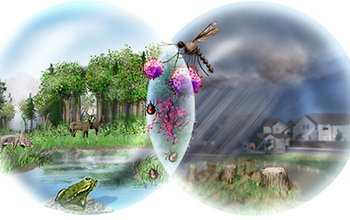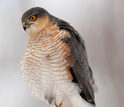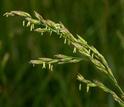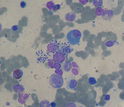Scientists will study disease transmission among humans, other animals and environment
 Infectious disease transmission links disease vectors, disease hosts and human habitations. Credit and Larger Version |
September 27, 2016
Outbreaks of infectious diseases such as Zika increasingly threaten global public health. Scientists expect five such new diseases to emerge each year.
To find out whether our interaction with the environment is somehow responsible, the Ecology and Evolution of Infectious Diseases (EEID) program -- a joint effort of the National Science Foundation (NSF), National Institutes of Health (NIH) and the U.S. Department of Agriculture (USDA) -- has awarded $16.6 million in new grants.
Rapid response
"Our ability to rapidly respond to disease outbreaks requires a basic understanding of how pathogens spread and evolve," says Sam Scheiner of NSF's Directorate for Biological Sciences and EEID program officer at NSF. "The EEID awards provide that broad knowledge by addressing infectious diseases in humans, in agricultural and wildlife animals, and in plants. They also enhance our capacity for response by building international collaborations and through extensive student training."
EEID projects allow scientists to study how habitat destruction, invasions of non-native species, pollution and other large-scale environmental events alter the risks of emergence of viral, parasitic and bacterial diseases in humans and other animals.
Researchers funded by EEID advance basic theory related to infectious diseases, and apply that knowledge to improve scientists' understanding of how pathogens spread through populations at a time of increasing global change.
"Predicting, controlling and preventing infectious disease threats requires multi-disciplinary research and international collaboration," says Christine Jessup of NIH's Fogarty International Center. "Through this unique and long-standing multi-agency partnership, NIH continues to support disease ecology research focused on threats to human health, including research in resource-poor countries, with the goal of fostering locally-relevant solutions."
Current, future threats
This year's EEID awardees conduct research on such subjects as: disease transmission in migratory birds along the Palearctic-African flyway; transmission networks and their implications for bee disease; the disease leishmaniasis in humans, dogs and sandflies in peri-urban Brazil; multi-species interactions in the microbiomes of plants, such as the grass tall fescue; and the discovery and characterization of viruses in primates, rodents and bats.
"The National Institute of Food and Agriculture is a key supporter of extramural research on food safety and security," says Sonny Ramaswamy, director of USDA's National Institute of Food and Agriculture. "Through our partnership with the Ecology and Evolution of Infectious Diseases program, NIFA is supporting cutting-edge research that ultimately can help American farmers combat infectious diseases that affect the health of crops and livestock animals."
Adds Yair Rotstein, executive director of the U.S.-Israel Binational Science Foundation, which is also supporting this year's awards: "Infectious diseases don't recognize countries' borders. Research on their eradication is therefore likely to benefit greatly from international cooperation. The U.S.-Israel Binational Science Foundation is proud to fund the Israeli scientist looking into the role of migratory birds in the spread of infectious diseases, demonstrating the importance of cross-border cooperation."
2016 EEID AwardsNSF-funded
Jonathan Epstein, Ecohealth Alliance Inc.,
RCN: EcoHealth Net 2.0: A One Health approach to disease ecology research & education
Wayne Getz, University of California, Berkeley,
US-Israel Collab: Pathogens take wings: disease transmission in migratory birds along the Palearctic-African flyway
Kurt Vandegrift, Pennsylvania State University, University Park,
The community ecology of viromes: Virome assembly and pathogen transmission in a changing landscape
NIH-funded
Janis Antonovics, University of Virginia,
Ecology and evolution of transmission mode: vector and aerial transmission in anther-smut
Scott McArt, Cornell University,
Transmission networks in trait-based communities: implications for bee disease
Jacob Oleson, University of Iowa,
Epidemic modeling framework for complex, multi-species disease processes and the impact of vertical and vector transmission: A study of Leishmaniasis in Peri-Urban Brazil
USDA-funded
Charles Mitchell, University of North Carolina at Chapel Hill,
Multispecies interactions in the microbiome: dynamic responses of parasite individuals, populations, and communities
-NSF-
Media Contacts Cheryl Dybas, NSF, (703) 292-7734,
cdybas@nsf.gov
Related WebsitesNSF News (2015 EEID Awards): To slow the spread of infectious diseases, NSF, NIH, USDA support new research:
https://www.nsf.gov/news/news_summ.jsp?cntn_id=136044
NSF News (2014 EEID Awards): Racing ahead of disease outbreaks: $12 million in new research grants:
https://www.nsf.gov/news/news_summ.jsp?cntn_id=132570
NSF News (2013 EEID Awards): Outbreak: Ecology and Evolution of Infectious Disease grants support research on disease transmission:
https://www.nsf.gov/news/news_summ.jsp?cntn_id=129280
NSF Special Report: Ecology and Evolution of Infectious Diseases: https://www.nsf.gov/news/special_reports/ecoinf/
NSF EEID Discovery Article Series: Seeking Zika: Where and when will Zika-carrying mosquitoes strike next?:
https://www.nsf.gov/news/news_summ.jsp?cntn_id=137712
The National Science Foundation (NSF) is an independent federal agency that supports fundamental research and education across all fields of science and engineering. In fiscal year (FY) 2016, its budget is $7.5 billion. NSF funds reach all 50 states through grants to nearly 2,000 colleges, universities and other institutions. Each year, NSF receives more than 48,000 competitive proposals for funding and makes about 12,000 new funding awards. NSF also awards about $626 million in professional and service contracts yearly.
Useful NSF Web Sites:
NSF Home Page:
https://www.nsf.gov
NSF News:
https://www.nsf.gov/news/
For the News Media:
https://www.nsf.gov/news/newsroom.jsp
Science and Engineering Statistics:
https://www.nsf.gov/statistics/
Awards Searches:
https://www.nsf.gov/awardsearch/

EEID grantees will study interactions between white-footed mice and blacklegged, or deer, ticks.
Credit and Larger Version

Disease transmission networks in bee disease is the subject of a new EEID project.
Credit and Larger Version

Pathogens take wing: Diseases in migratory birds on the Palearctic-African Flyway are under study.
Credit and Larger Version

EEID biologists will conduct research on the microbiome of a widespread grass called tall fescue.
Credit and Larger Version

The disease leishmaniasis under a microscope. EEID researchers will track it in peri-urban Brazil.
Credit and Larger Versión
The National Science Foundation (NSF)
Guillermo Gonzalo Sánchez Achutegui
ayabaca@gmail.com
ayabaca@hotmail.com
ayabaca@yahoo.com
Inscríbete en el Foro del blog y participa : A Vuelo De Un Quinde - El Foro!
No hay comentarios:
Publicar un comentario
Por favor deja tus opiniones, comentarios y/o sugerencias para que nosotros podamos mejorar cada día. Gracias !!!.